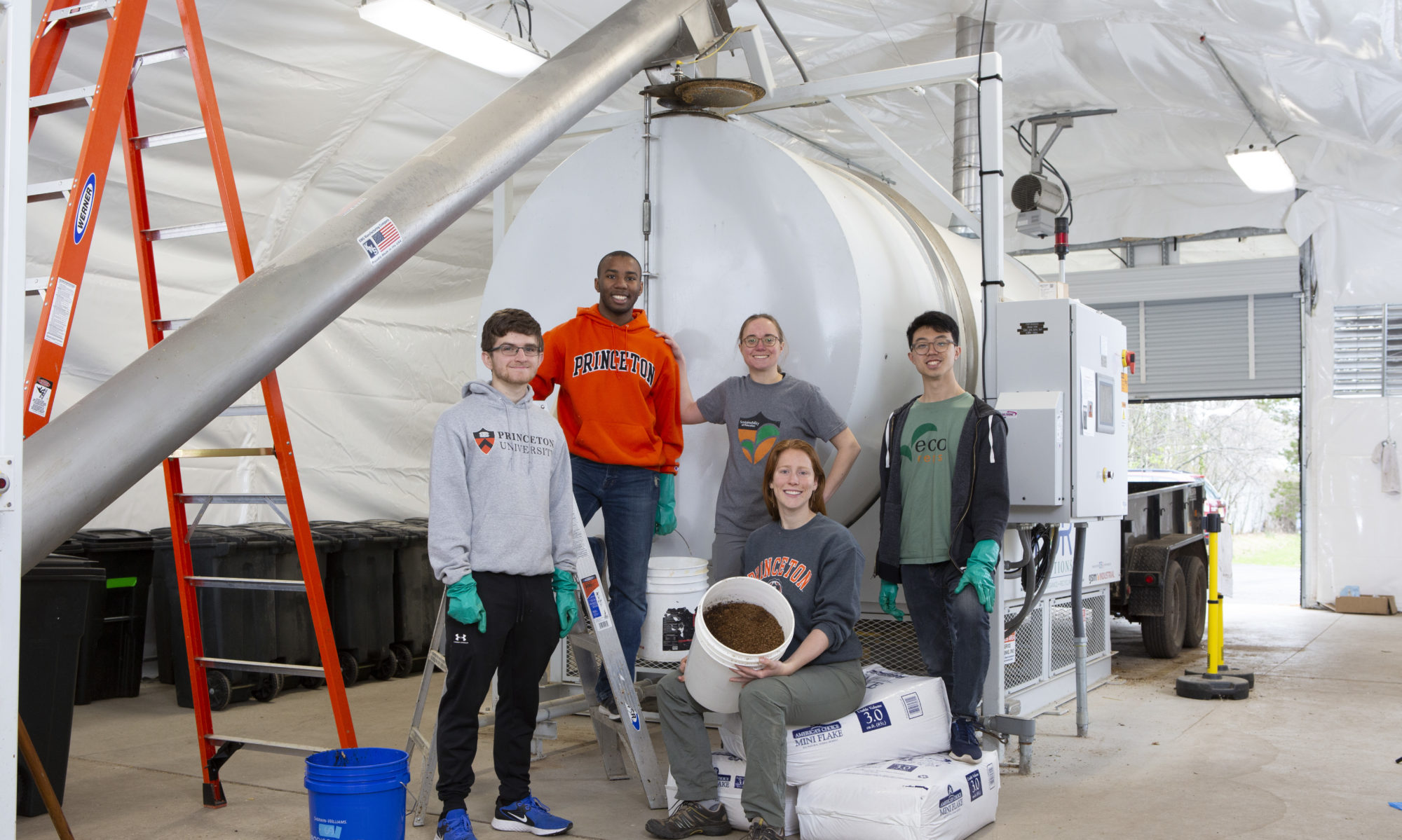Happy Spring!
After a short hiatus for Spring Break, the SCRAP Lab is back in operation! We thank Organic Diversion for assisting us and picking up the uneaten food from the University’s retail dinning venues while we were not in operation.
Since our composting system is demonstration-scale and has a limited capacity of 5,000 lbs. of uneaten food per week, we are unable to accept all that is generated and recovered across the University dining venues. As such, the University partners with Organic Diversion to pick-up both pre and post consumer uneaten food from all campus dining halls for transport to NJ farms where the feedstock is composted in windrows or used as animal feed.
See below for a visualization of the University’s food scraps diversion program:

[Data represents monthly totals. At full operational capacity, the SCRAP Lab would process about 1/5th of the total food scraps recovered from Campus Dining venues. However the SCRAP lab is only currently operating at 60% capacity. To reach full capacity we are gradually expanding into both academic and residential buildings, starting with the Scully Co-op and McGraw Center.]
Based in Marlton, NJ, Organic Diversion is in the process of building a regional organics recycling facility that combines anaerobic digestion with composting, but until that facility is operational, the company is only accepting food-based feedstocks versus other types of compostable material such as soiled paper products (e.g. napkins, paper towels, greasy pizza boxes) and plant-based food service ware. However these are all items that are readily acceptable in the FOR Solutions composting system and we have plans during the coming weeks to recover and test more of these items.
Stay tuned for more exciting initiatives as we approach Earth Month!
